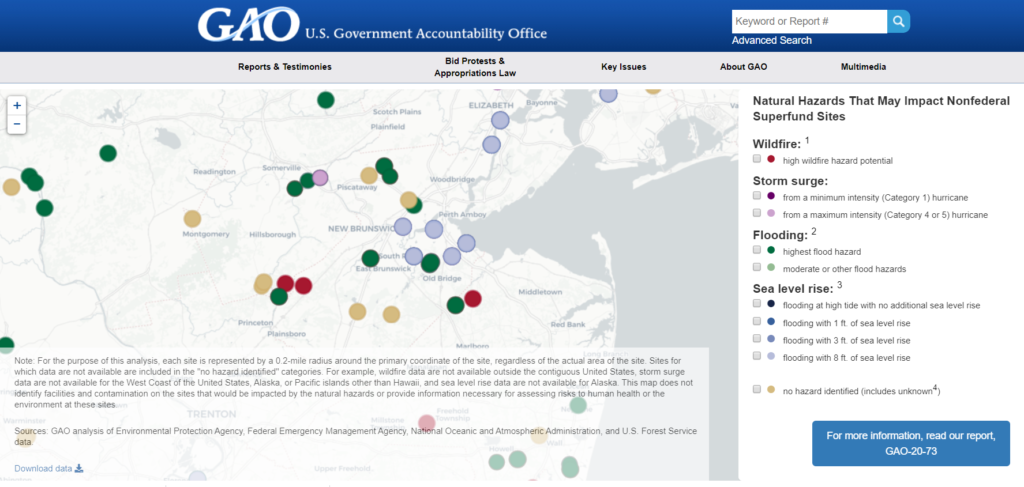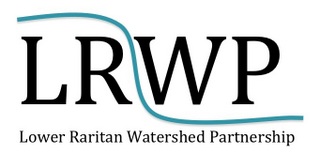Our Toxic Soup
Last month the US Government Accountability Office released a report of those toxic waste sites deemed most “at risk” of disaster from climate crisis. The report identifies a total of 945 problem sites in the United States, 24 of which are in the 352-square mile Lower Raritan Watershed. That is, an incredibly disproportionate 4% of the nation’s total at-risk superfund sites are in our Lower Raritan (see list below).

At-risk Superfund sites in the Lower Raritan Watershed include:
Federal Creosote, Manville
CPS/Madison Industries, Old Bridge
American Cyanamid, Bridgewater
Fried Industries, East Brunswick
Kin-Buc Landfill, Edison
Global Sanitary Landfill, Old Bridge
Renora Inc., Edison
Brook Industrial Park, Bound Brook
JIS Landfill, South Brunswick
Chemical Insecticide Corporation, East Brunswick
Monroe Township Landfill, Monroe
Sayreville Landfill, Sayreville
Chemsol, Piscataway
South Brunswick Landfill, South Brunswick
Myers Property, Franklin Township
Evor Industries, Old Bridge
Horseshoe Road, Sayreville
Higgins Farm, Franklin Township
Cornell Dubilier, South Plainfield
Atlantic Resources, Sayreville
Franklin Burn, Franklin Township
Raritan Bay Slag, Old Bridge/Sayreville
Woodbridge Road Dump, South Plainfield
Burnt Fly Bog, Marlboro
Concerns of risks posed by legacy pollutants, particularly in light of sea level rise and climate change, have long been on the LRWP’s radar. These concerns motivate our grant-seeking to protect inland communities from potentially toxic sediment deposition through tidal marsh restoration, and watershed partners will receive support through the National Fish and Wildlife Foundation to develop an engineering plan with a permit-ready design to start to protect vulnerable South River residents from riverine flooding and storm flows, and what we already know are toxic flows of sediment into their neighborhoods.
In coming months the LRWP will analyze the GAO and other data, prioritizing focus areas, and wrestling with what the Superfund report means in terms of restoration and resiliency planning for our watershed going forward. We will also be working to develop a strategy to best position ourselves to hold state and federal entities accountable for clean-up, protecting our communities, and similar.
